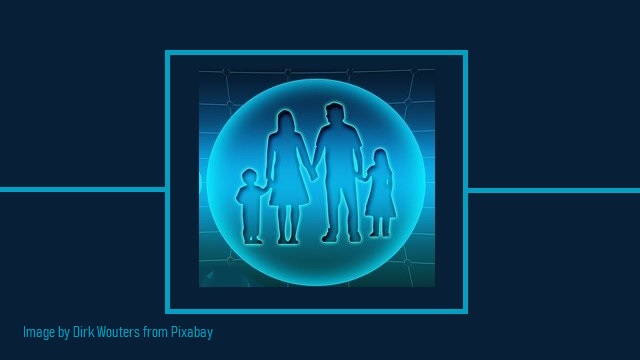New Study Shows A Third of Working Families Can No Longer Afford Basic Needs
By The Geller Report

“A ‘mixed economy’ is a society in the process of committing suicide. If a nation cannot survive half-slave, half-free, consider the condition of a nation in which every social group becomes both the slave and the enslaver of every other group. Ask yourself how long such a condition can last and what is its inevitable outcome. When government controls are introduced into a free economy, they create economic dislocations, hardships, and problems which, if the controls are not repealed, necessitate still further controls, which necessitate still further controls, etc. Thus a chain reaction is set up: the victimized groups seek redress by imposing controls on the profiteering groups, who retaliate in the same manner, on an ever widening scale.” — Ayn Rand The Ayn Rand Column “The Cold Civil War”
“Every government interference in the economy consists of giving an unearned benefit, extorted by force, to some men at the expense of others. By what criterion of justice is a consensus-government to be guided? By the size of the victim’s gang.” — Ayn Rand, “The New Fascism: Rule by Consensus” Capitalism: The Unknown Ideal
A full third of working in the families cannot afford basic needs any more.
This is horrible consequence of the Democrats’ “economy of scarcity” versus the MAGA Republican “economy of abundance.” In other words, communism versus capitalism, individualism versus statism.
New study shows a third of working families can no longer afford basic needs
A third of working families can’t afford basic needs: study
By Snejana Farberov and Patrick Reilly, The New York Post, September, 9, 2022
More than a third of US families that work full-time do not earn enough money to cover their most basic needs, including housing, food and child care, a new study shows.
Researchers at Brandeis University found 35% of American families do not meet the “basic family needs budget” — the amount needed to afford rent, food, transportation, medical care and minimal household expenses — despite working full-time year-round.
And the economic situation is even more dire for working black and Hispanic families, more than 50% of whom cannot afford the basics.
For comparison, a quarter of white families and 23% of Asian and Pacific Islander families are struggling to make rent and buy food, despite holding down full-time jobs.
A study by researchers at Brandeis University’s diversitydatakids.org program shows that 35% of American families with full-time jobs cannot afford the basics.
A study by researchers at Brandeis University’s diversitydatakids.org program shows that 35% of American families with full-time jobs cannot afford the basics.
Jesus Montiel, Krista Mason and their daughter Diana, 2, spend time together at their home in Wyoming, where inflation has been hitting families hard.
Jesus Montiel, Krista Mason and their daughter, Diana, 2, spend time together at their home in Wyoming, where inflation has been hitting families hard.
Low-income families with children are doing especially poorly, according to the survey, with more than two-thirds of full-time workers failing to earn enough to make ends meet.
Most of these families would need to earn about $11 more per hour to fully cover basic expenses, or about $23,500 in additional annual earnings, according to the research.
Meanwhile, black and Hispanic families would need to earn more than $12 per hour — an additional $26,500 per year — just to meet a family budget.
“These results are a wake-up call for decision makers to prioritize policies that address income inequality and racial and ethnic equity and extend real opportunities for economic self-sufficiency,” said Dr. Pamela Joshi, senior research scientist and lead study author.
View Table 1: Job Characteristics of Full-Time Full-Working Families
The study, which is based on 98,000 households, also found that more than half of low-income Hispanic families do not have health insurance, and more than three-quarters do not have pensions.
“When families can’t afford their basic needs, it places stress on parents’ health, and it increases the likelihood that children will continue to lack resources and opportunities that promote their well-being,” said study co-author Dr. Dolores Acevedo-Garcia.
The study offers several recommendations to policymakers to improve the economic outlook for low-income families, including creating more jobs that provide a living wage, expanding income support, and paid family and medical leave.
The results of the survey are based on data from 2015 to 2019, before the outbreak of the coronavirus pandemic that wreaked havoc on the job market, and before the recent spikes in inflation, gasoline and food prices.
AUTHOR
Pamela Geller
RELATED ARTICLE: Americans Spent More on Taxes in 2021 Than on Food, Clothing and Health Care Combined
EDITORS NOTE: This Geller Report is republished with permission. ©All rights reserved.

This article is courtesy of DrRichSwier.com, an online community of citizen journalists, academics, subject matter experts, and activists to express the principles of limited government and personal liberty to the public, to policy makers, and to political activists. Please visit DrRichSwier.com for more great content.

